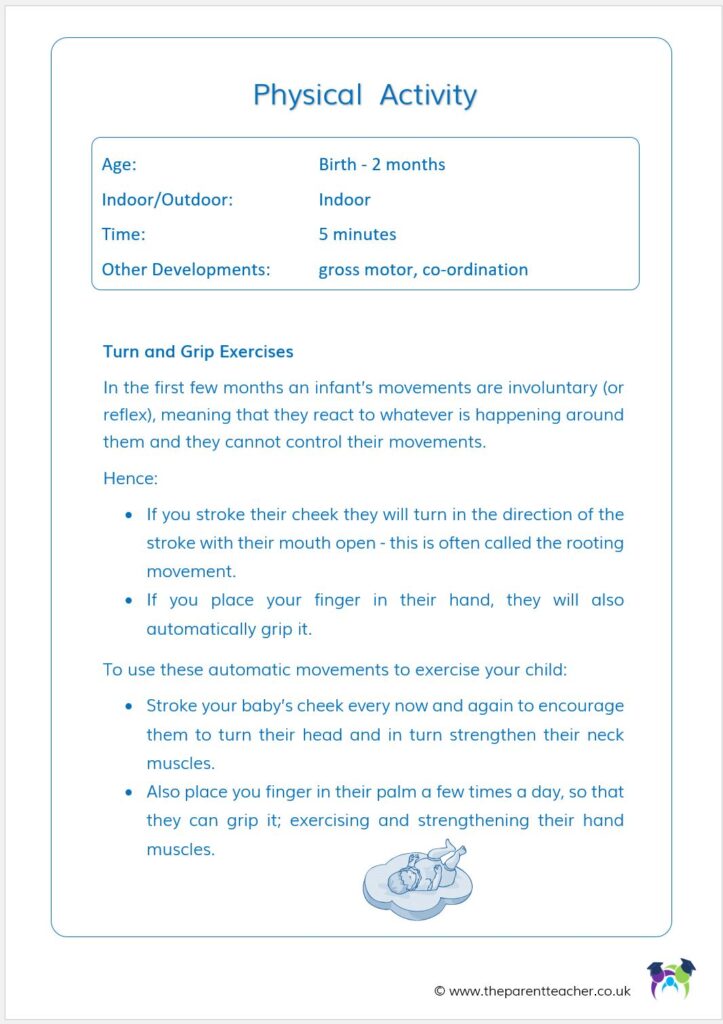Supporting Your Baby's Developments
Choose a timetable


What to Expect
During the second month of life, you and baby have a little routine in place. It’s not a hard fast schedule and can vary quite a bit from day to day, but you’ll be a little more on auto pilot, than trying to figure everything out. Baby is still waking up at night to feed. Although, they are starting to stay awake for longer during the day. During this time baby now can:
- Watch and track toys and movements with their eyes
- Begins to make cooing noises instead of just crying/fussing
- Starts to attempt to copy simple sounds like ‘oh’ or ‘ooh’ and ‘ah’
- Smiles during interactions you have with them and other trusted people
- Lifts head up when lying on tummy but is not able to control their movements for long periods of time.
- Can hold up head without support
- May start to drool because of discomfort in gums and suck on hands
What to do
Use the timetable below to support their developments and avoid developmental delays. This timetable builds on the previous month and baby needs to continue some of the activities expereinced previously. However, they will be able to achieve greater levels of skill.
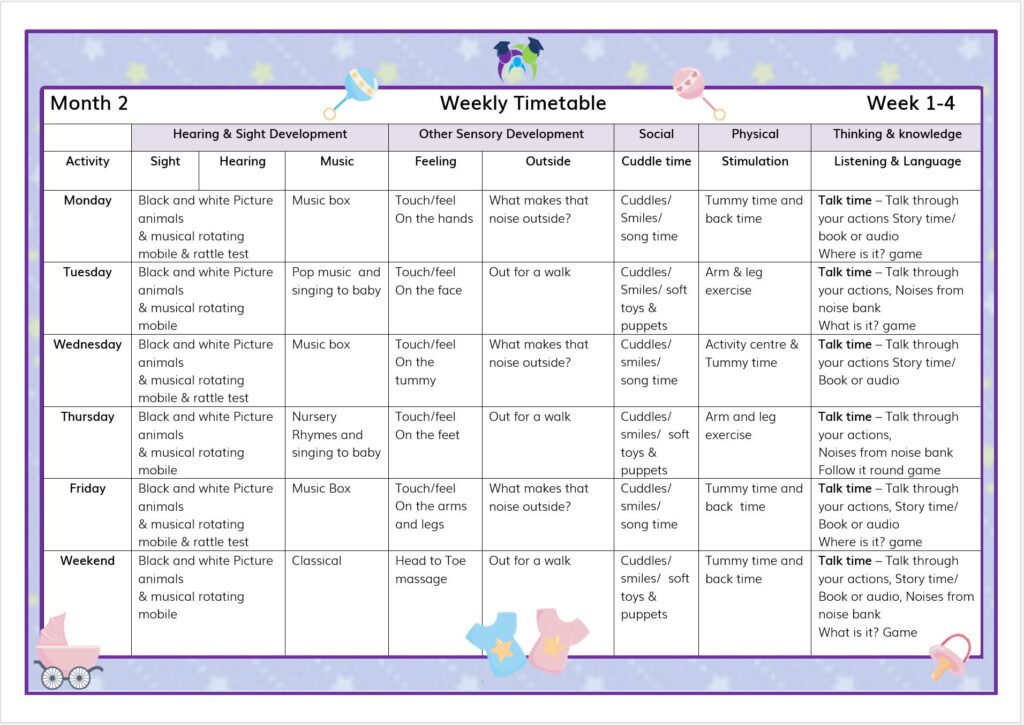
hOW TO SUPPORT Baby's DEVELOPMENTS
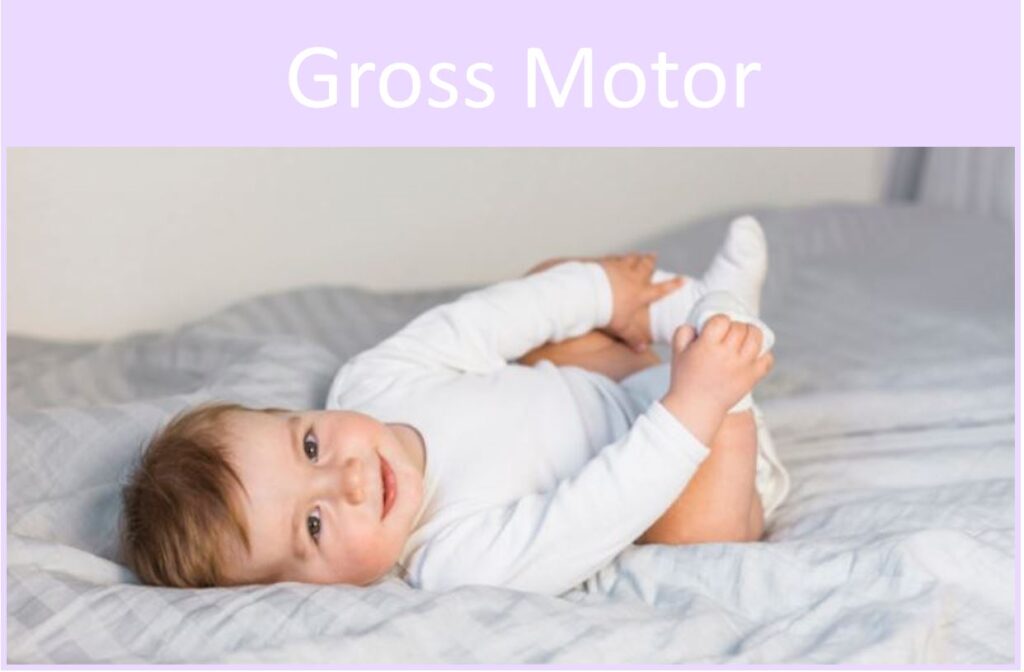


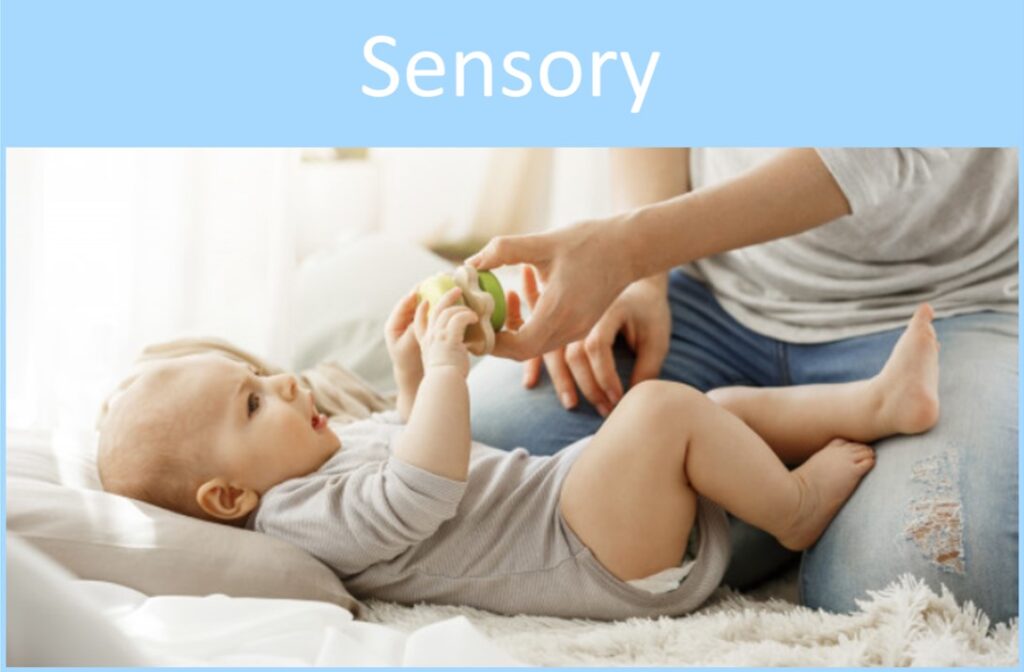
The big muscles in the body need exercising to develop strength, co-ordination and balance. Try the activities below throughout the week to support your child’s developments.
Your baby’s eyesight will be much stronger now and they will soon start to see in colour. Use the coloured images to develop the colour receptors in their eyes.
They will have almost perfect hearing now and startle at sudden noises. Continue to stimulate their hearing and give them access to different noises to develop their awareness.
Your baby will not be as stiff as the previous month and with growing flexibilty will start to kick and move more. Stimulate their senses as before to develop further awareness and co-ordination.




Baby will start to become more vocal now. There will be different tones to their cries and as they listen to you talk to them, they will attempt to make noises back in the form of ‘ooohs’ and ‘aaahs’, so continue to interact with them.
Baby is now becoming aware of who spends the most time with them and developing a stronger bond. Continue to use the resources like in the first month to develop their skills further and develop further awareness.
Babies are quickly gather information from their surroundings and starting to understand processes. Instead of just randomly crying and reacting, this month they will start to notice what happens when they cry, make a cooing sound etc.
Their reflex actions will start to subside around now and more voluntary movements will start to take over, so continue to encourage hand movements, and strengthen hand muscles. They will soon be able to pick things up and hold them in their hands too.

0 – 3 Months

Follow the Sound
Monitor your infant’s hearing development and stimulate their listening skills.

Sound clips library
Stimulate your child’s hearing with these different noises (comes with accompanying picture cards).

Music and audio stories
If you are short of time, and cannot read or sing to your baby yourself, play music or stories in the background for your infant to listen to and support their brain development.


Sillouette cards
16 black and white pictures to focus and strengthen eye muscles (hold 12 inches away from eyes).
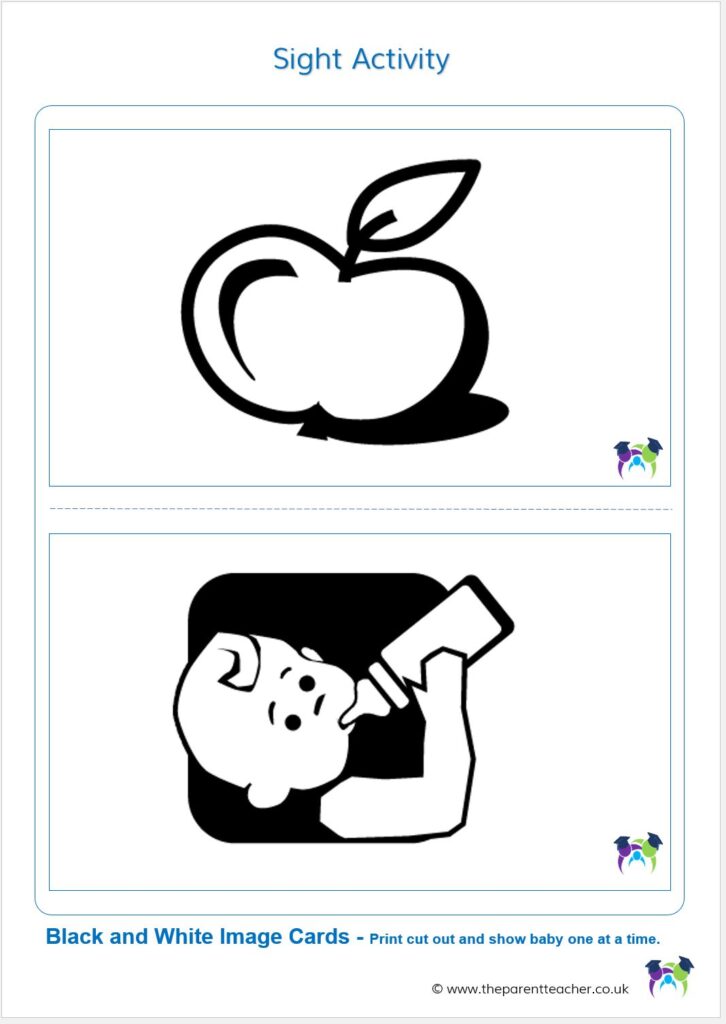
Follow it - light
Attract their attention with a rainbow of colours from crystal pendants.
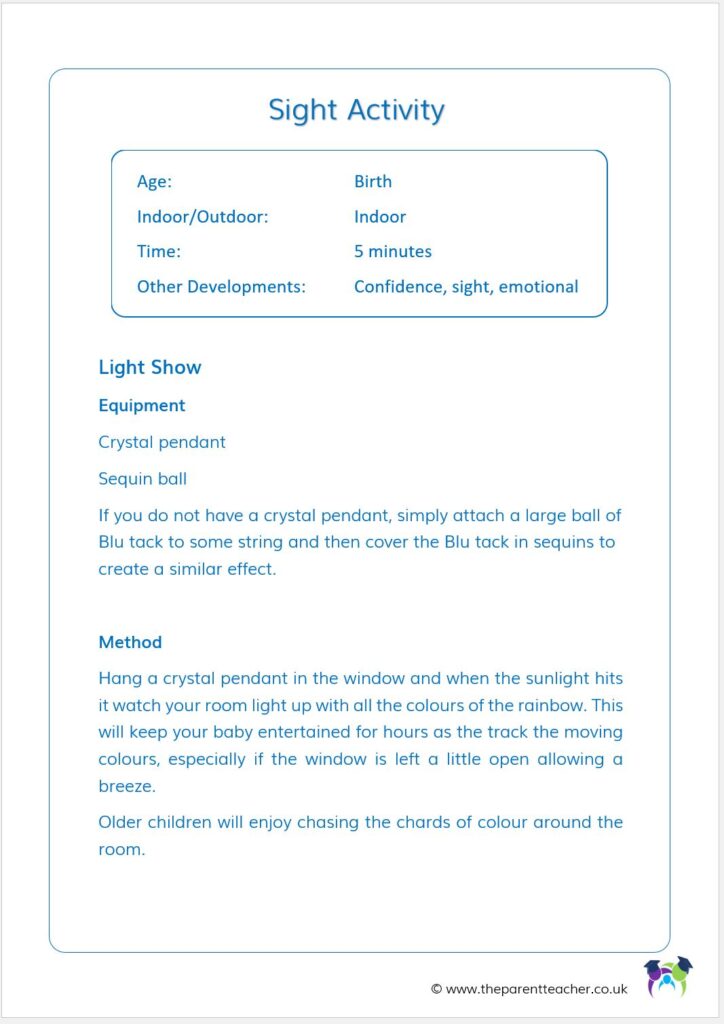
Follow it - mobile
It’s important to support your baby’s eye sight. A musical mobile can work wonders.
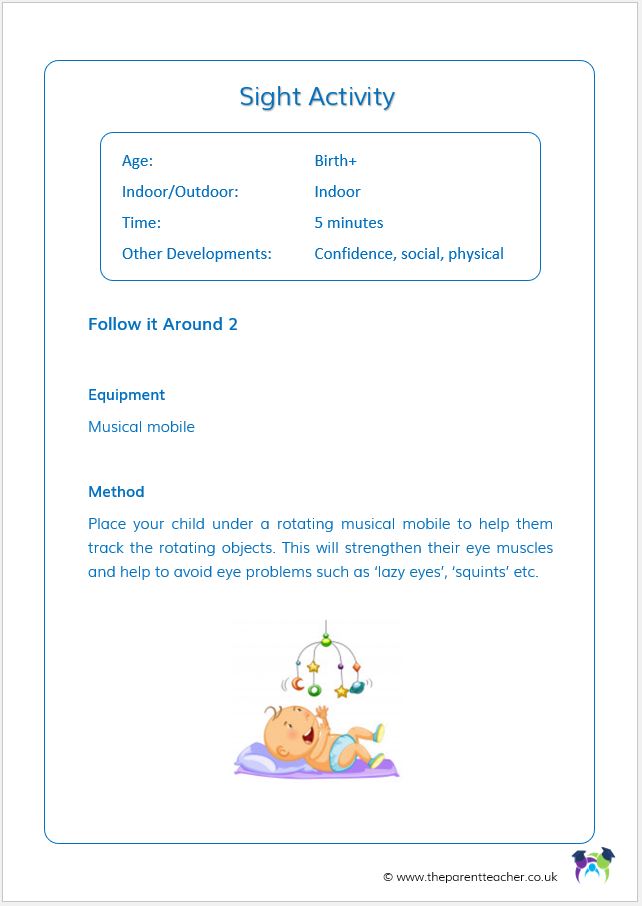

Flying Baby
Develop trust and bonding between you and your baby. Rock them and take them for a ride.
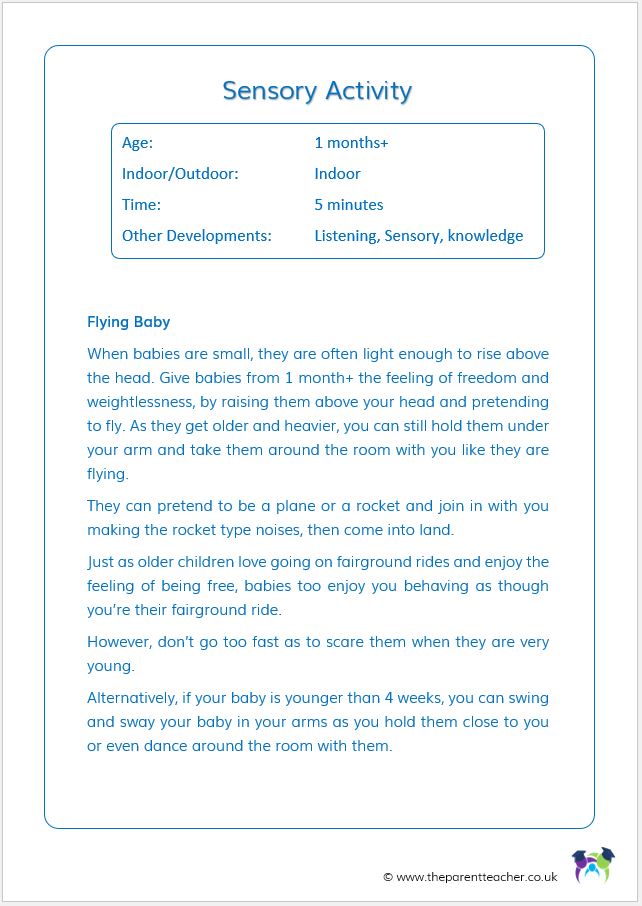
Roly Poly
Human contact and physical interaction is important for babies. This activity builds bonding.
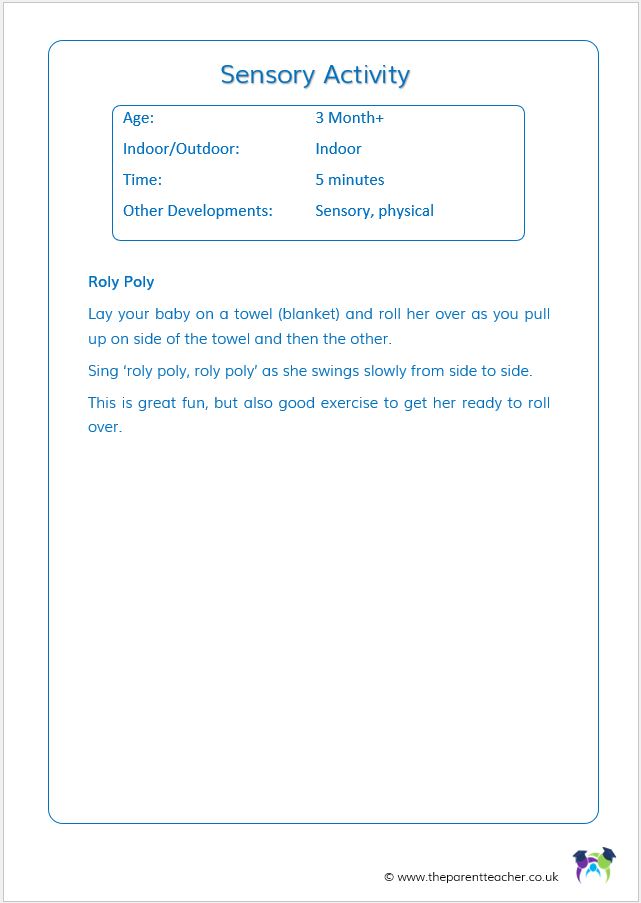
Cuddle Time
Developing a strong bond between parent and baby develops confidence and resilience.
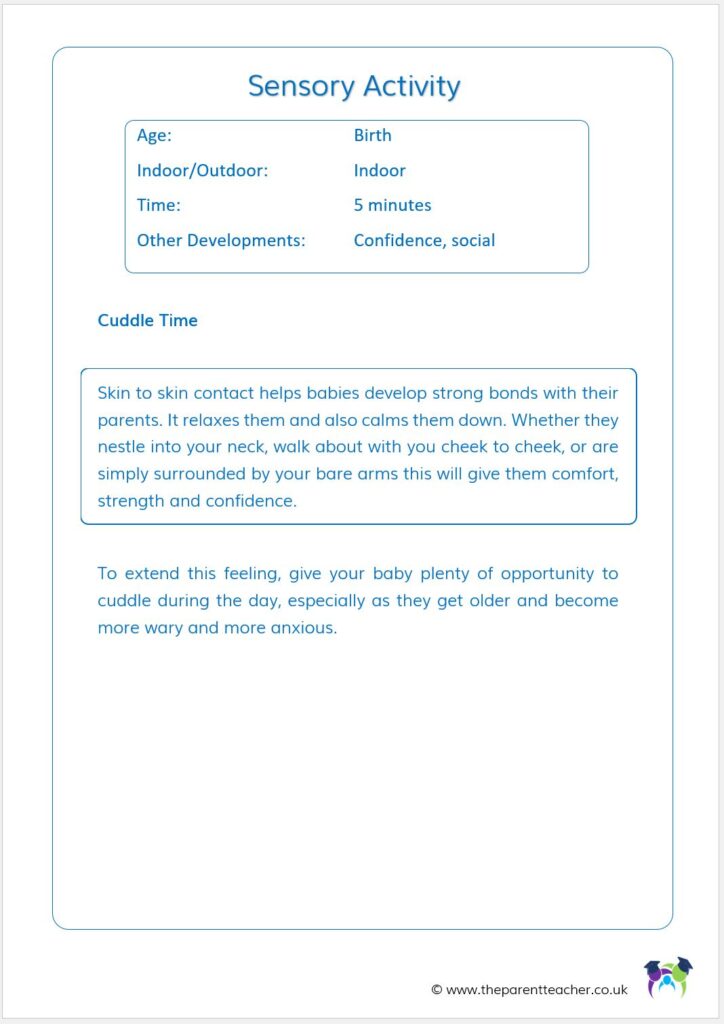

Essential Toys
Babies need to exercise their arm and leg muscles. These toys will encourage gross motor development.

Baby Massage
Babies need to stretch their muscles to make them more supple and flexible. Help them to relax through massage.

Baby Gym
Baby gyms have multiple functions. These are excellent for developing sight and hearing, as well as gross motor skills.
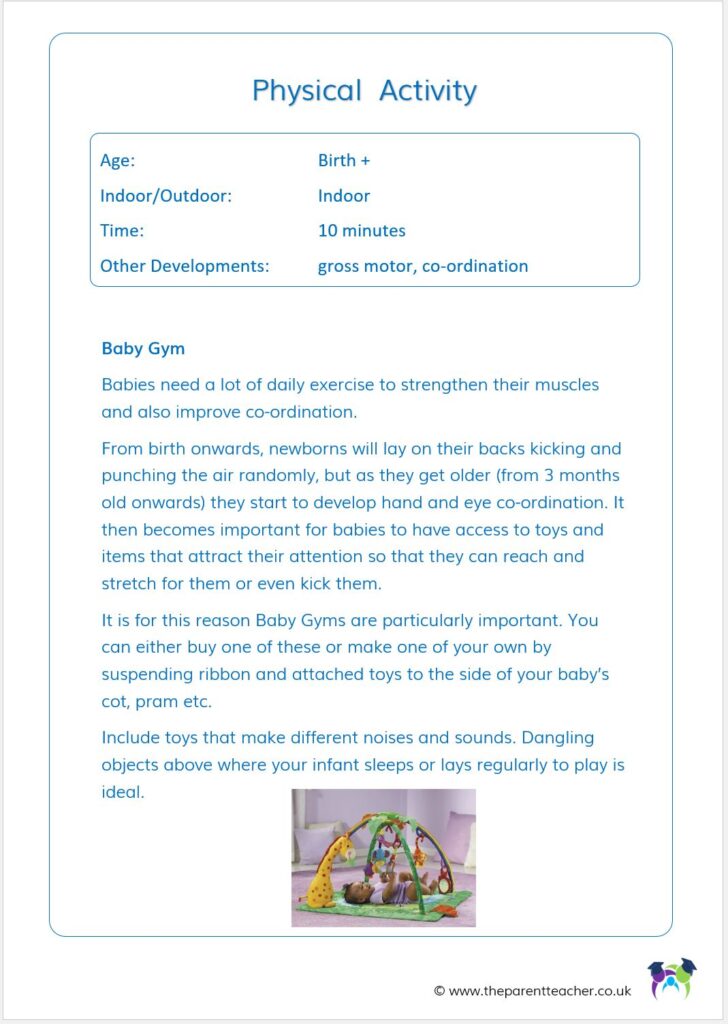

Story Telling
Develop your child’s language skills by telling them stories.

Action Talk
Talk through your actions and tell your child what you are doing.
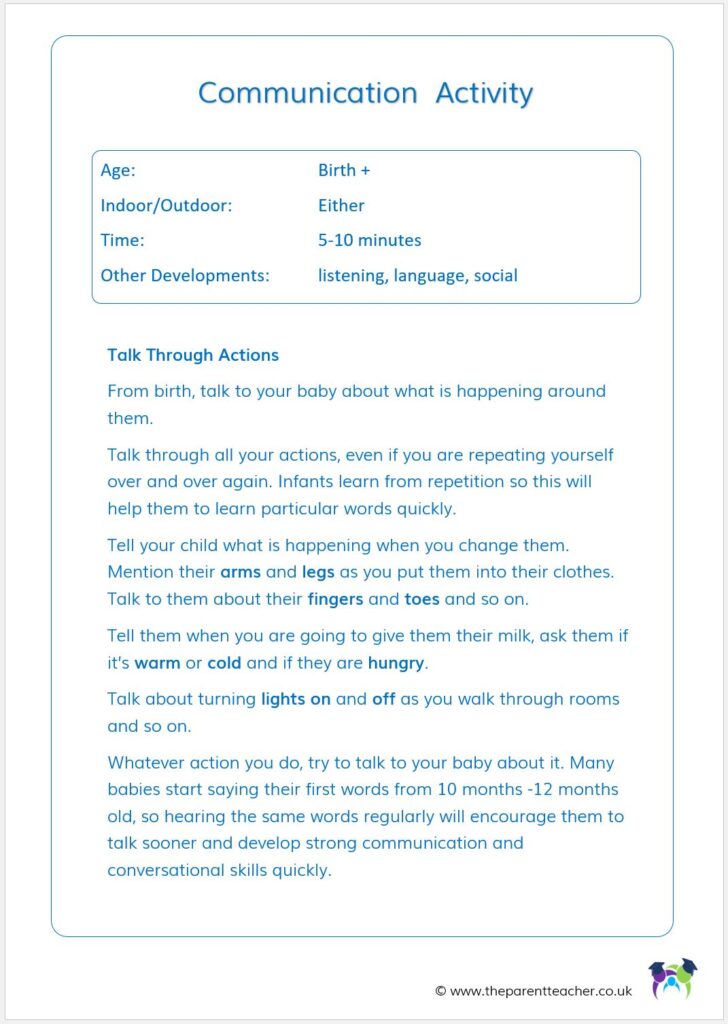
Walk and Talk
Develop your baby’s social skills and language skills together.
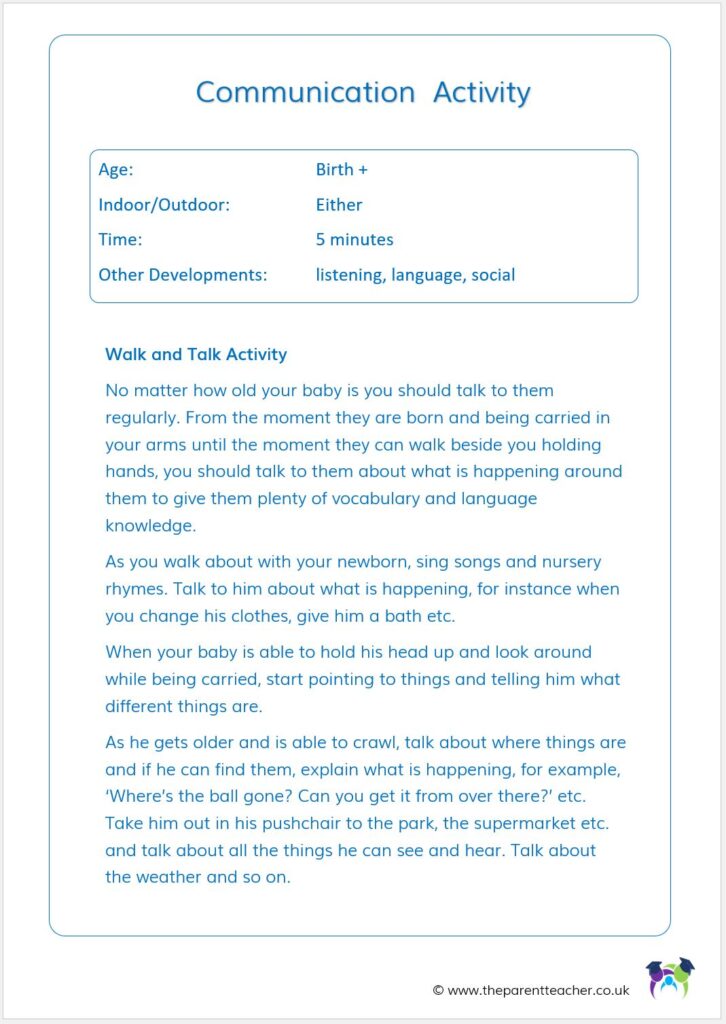

Encourage copying
Babies learn by copying – start the process early.
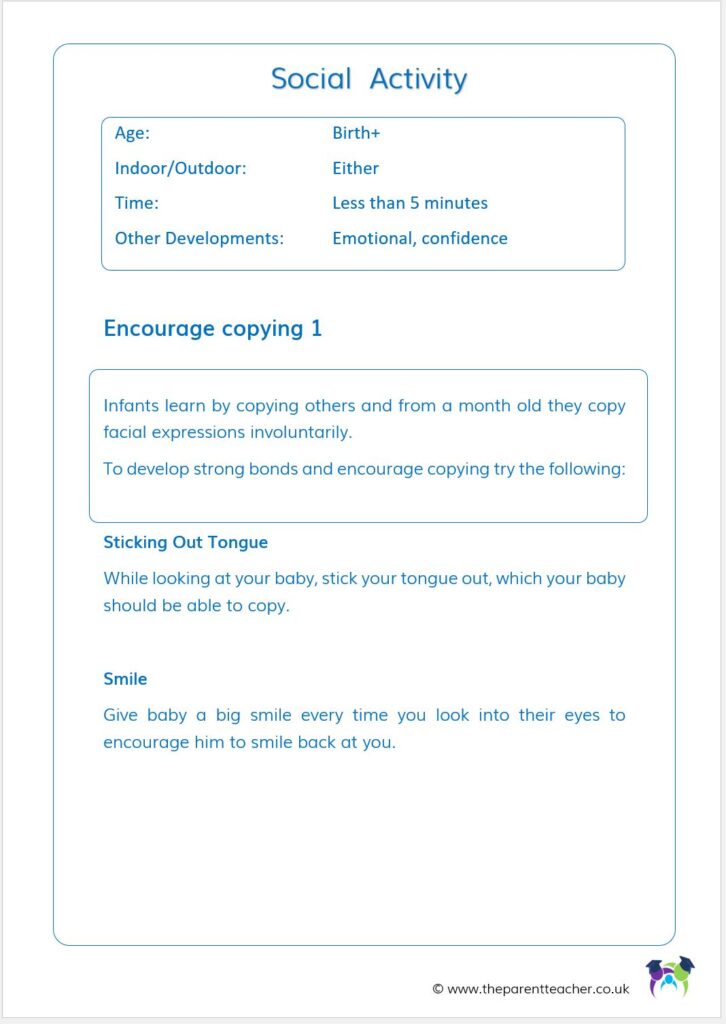
Social Interactions
Encourage interactions with others to develop social skills.
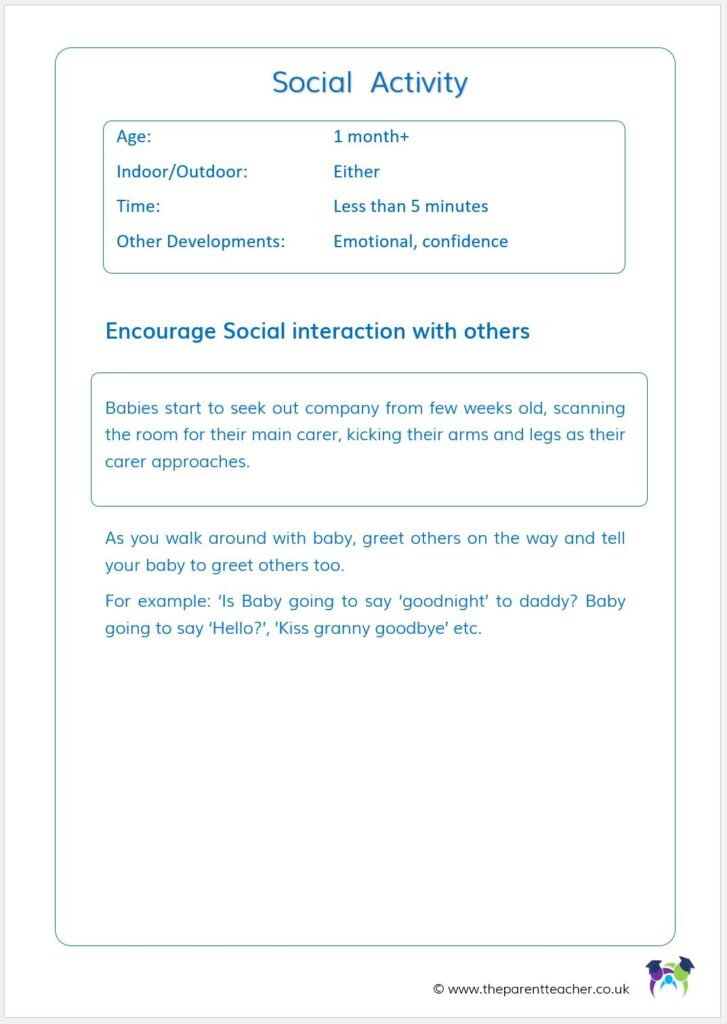

Baby Stretch
Before your baby can use their hand muscles, they need to strengthen their arm and shoulder muscles.

Baby Yoga
Help your child become flexible and strengthen their muscles with relaxing yoga exercises. Be very gentle with newborns.
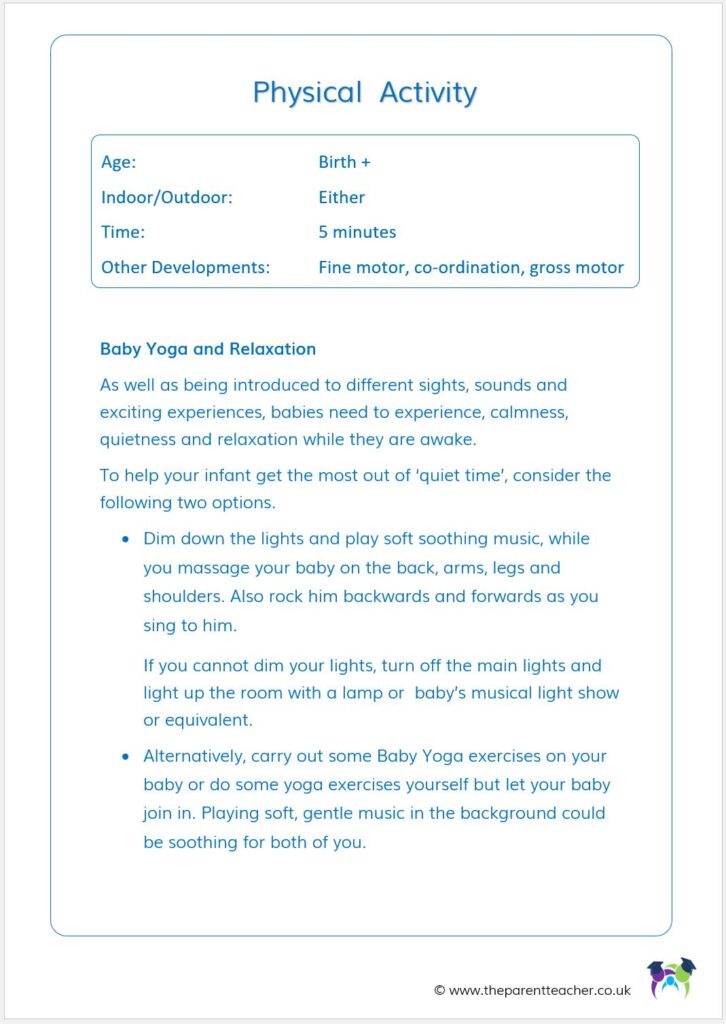
Turn and Grip
These simple exercises use a baby’s natural reflexes to strengthen their hand muscles and develop fine motor skills.
